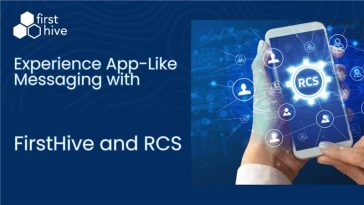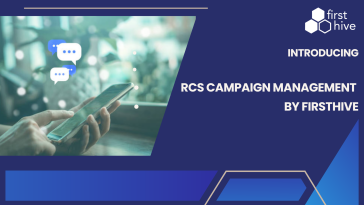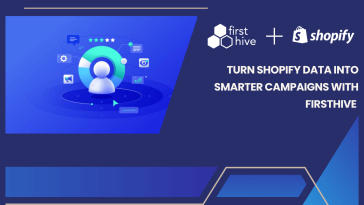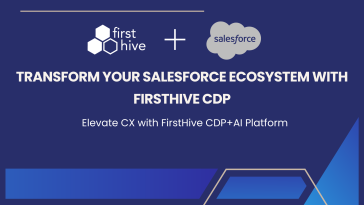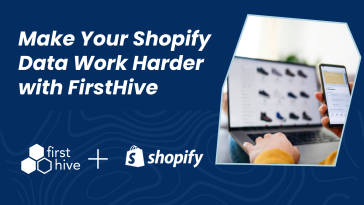A recent report published by Forrester concluded that “Data Management Masters will rule the world.” This brings a pressing need on to B2B marketers to upgrade their skills to manage customer data in an intelligent and efficient manner. The report confirms that “Only B2B marketers who will realize AI’s role in their martech stack and the ultimate promise of autonomously creating and delivering optimized experiences throughout the entire customer life cycle will be those that start solving their data challenges today.”[1]
What Are The Customer Data Management Tactics Required By A B2B Marketer?
The answer is ‘None and Many’.
B2B marketers deal with a combination of Account-Based Marketing, Content Marketing, Programmatic Advertising, E-mail Cadences and Marketing, Events, Social Media Marketing, Upselling and more, at any given point in time.
To apply the right tactic for optimal conversions, B2B marketers try and make the most out of a single email ID, website visit, page share or in other cases a download or signup. These email IDs are accumulated into databases over several lead generation campaigns and interactions. For an email ID to transform into a paying customer, marketers devise personalized campaigns, offers, and communication across all the available touchpoints and marketing channels with granular attention to details.
With so much happening, there is a constant need for the marketer to make data-driven decisions as there is no room for risk or guesswork. Also with large volumes of traffic, it is practically impossible for marketers to manage without automation and this possible only through customer data management Here are the skills that help a B2B Marketer master customer data management.
Data Source Consolidation
Customer data never comes from a single source. Though a customer would have submitted an email ID via a landing page, chat, or at an event, the customer’s preference and behavioral footprints are left behind across multiple channels. Customer data is camouflaged across millions of interactions across all the active marketing channels.
A B2B marketer should be able to configure all channels to talk to each other and identify high-converting potential consumers. A marketer also needs to be able to find ways to consolidate and ingest data into one single view that helps in achieving data democratization for the entire organization. Building unique customer identities is also a part of creating a single view. This process is achieved through customer data platforms that are equipped with the necessary technologies.
Data Quality Management
First-party information is effortless to gather with automation. B2B Marketers need to create an ecosystem around tools that can also find anonymous information about their customers. Imagine running an ABM campaign with incomplete and incorrect information. ABM budgets are steep and messing around with them would mean a dip in the ROI.
Similarly, a combination of email marketing and programmatic advertising campaign should be responsive and contain dynamic communication for its audience. Such communication can be achieved only when backed by complete and highly accurate customer data. High-quality data is also imperative while executing loyalty programs. Processes such as uniquification achieve the cohesion required for a brand’s messaging efforts.
Contextual In-Time Response
To achieve high returns, the in-time response by any B2B marketer is not enough. The response has to be contextual. The right orchestration of campaign across channels would facilitate such a response.
Apart from strategy, the real execution happens when your marketing technology stack is integrated in a way to talk to each other identify the customer for each context. The tech stack well layered by AI is another aspect that will ensure effortless implementation of contextual in-time response.
Cohort Management
Customer data starts making real sense only when they start fitting into personas and cohorts defined by the marketer. Targeting becomes effortless with cohorts. This is where the intelligence of a B2B marketer makes all the difference.
Audience building or segmentation when automated allows the marketer to bring the element of intelligence into the system. Using tools that over time gain intelligence to segment cohorts automatically leaves the marketer to bring better value to the brand.
While these are few tactics a B2B Marketer should focus on, use of intelligent technology always brings the edge. The Forrester report also predicts that by 2025, more than two-thirds of B2B marketers will choose a packaged application such as a CDP rather than build a custom data lake.
Forrester has recognized FirstHive as a Standalone CDP that comes with professional capabilities of data hygiene, data consolidation, tech integration, and other predictive
marketing and deliver advanced functionality for data integration, segmentation, and analytics. You can access this exclusive report for B2B marketers, titled: New Tech: B2B Marketing Data Management Solutions, Q1 2019
Reach out to us to find out how you could get started with a Customer Data Platform for B2B Marketing.



